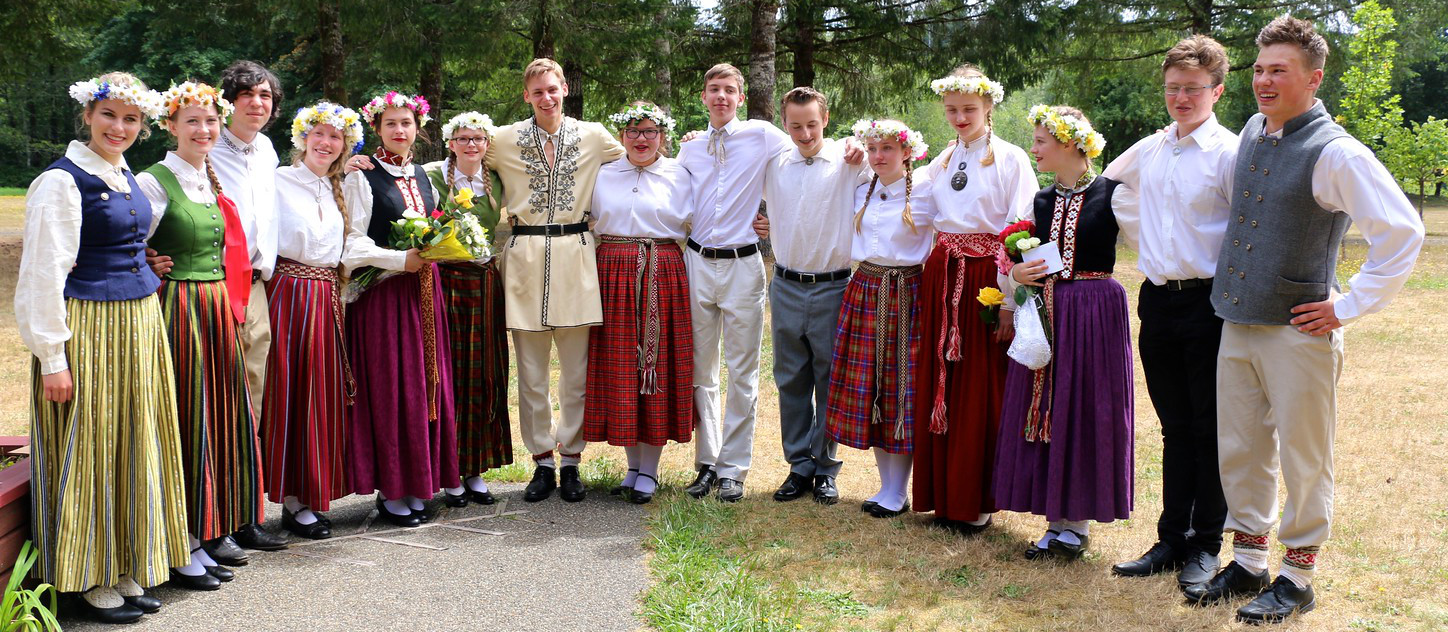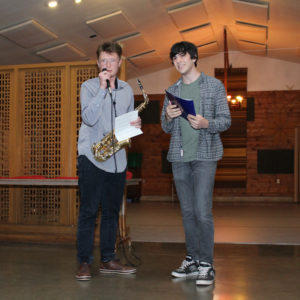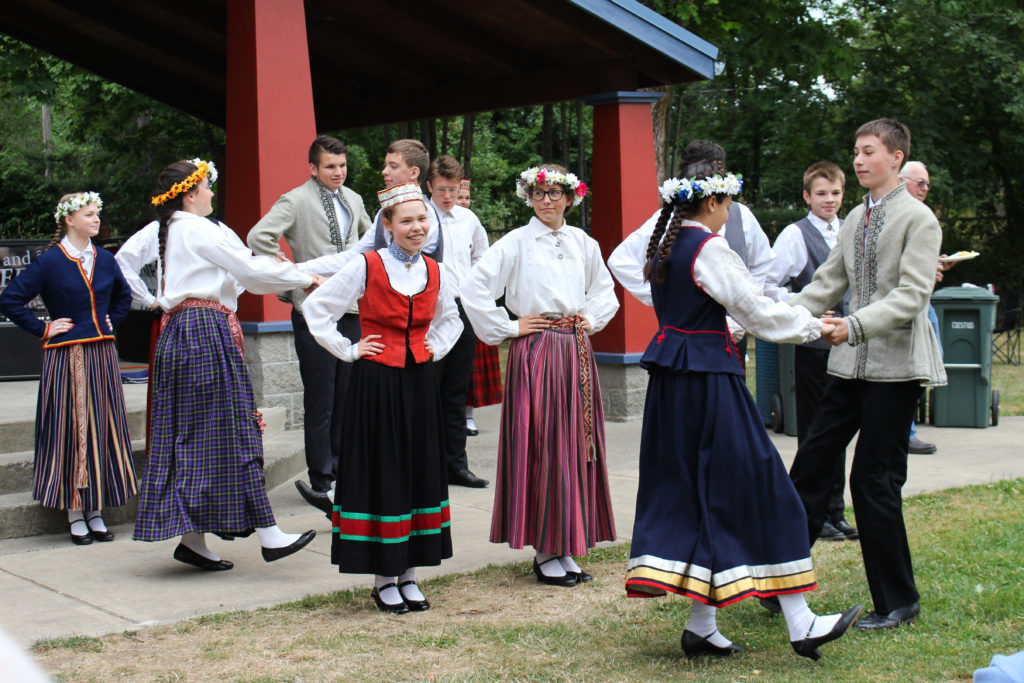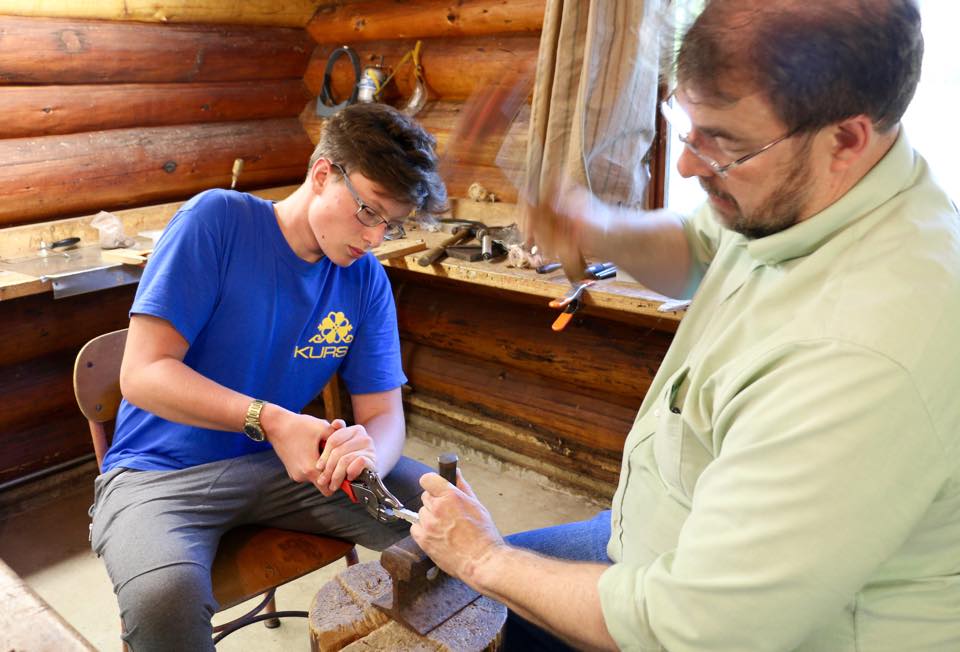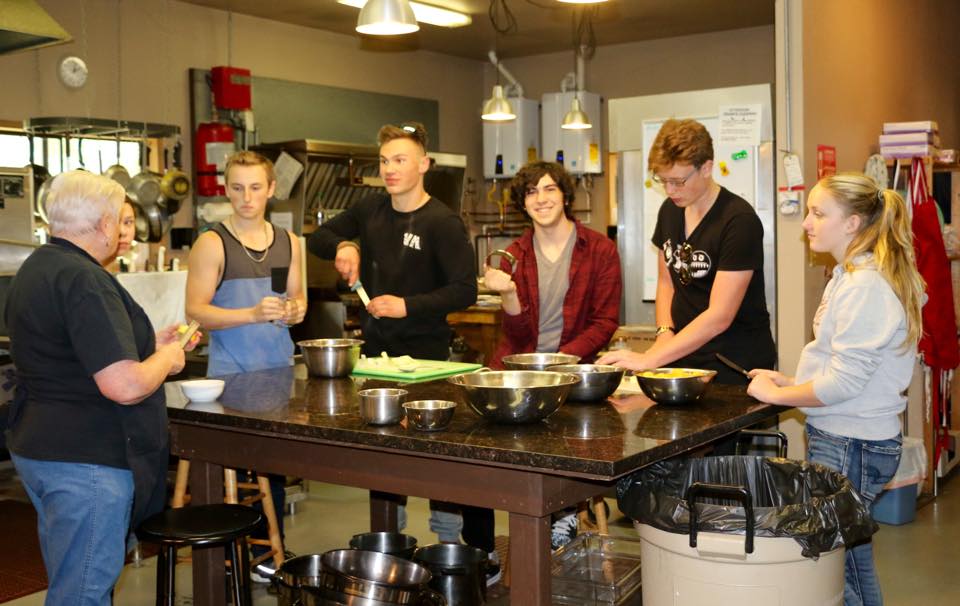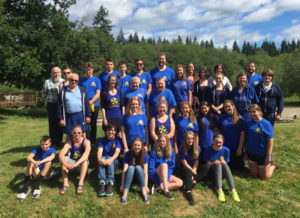
Kursa Latvian Summer High School began its 42nd year on July 9, a sunny day at the West Coast Latvian Education Center in Shelton, Washington. Kursa gives young people between the ages of 13 and 18 the opportunity to begin or continue their Latvian education, regardless of their Latvian language level. This year, not only have all of last year’s students returned (in 2016 Kursa restarted the program), but an additional 10 students have joined the Kursa family. While Kursa is nominally the West Coast Latvian High School, we not only have students from Washington, Oregon, and California, but also from Minnesota, Maryland, Iowa, and Canada, as well as two returning students from Latvia. Our teachers reflect a similar geography, coming from California, Alaska, Maryland, Oregon, Washington, and Latvia. Together, we form a tight-knit community. We are especially glad that students who may not have previously had the opportunity to be part of Latvian society are able to begin their Latvian education and develop their connection to Latvia with other students here at Kursa.
We have already done a lot in the first week at Kursa. All of our students have taken official Latvian language exams in writing, reading, speaking and understanding. We have begun classes (language, literature, history, ethics and folklore), in which students are grouped by their Latvian language level. Already we have become familiar with some of the brightest Latvian authors, including Vizma Belševica an Imants Ziedonis. Our voices and feet are also moving, preparing for our final program: “Sun and Moon.” We have even made it to the seaside, where we spent a nice day enjoying the Pacific Northwest coastline.
Why have these young people come to Kursa? In their own words:
Ella (14, California): “I want to dance folk dances, improve my Latvian language, and bake pīrāgi.”
Elmārs (17, Riga): “I want to refresh my folk dance skills, learn Latvian metalsmithing, and help other students learn to speak Latvian. I’m at Kursa because it is a great place to spend time.”
Roland (17, Portland): “I want to learn new words, folk dance, and Latvian history, and meet up with my old friends.”
Zippa (13, Minnesota): “I’m at Kursa because Kursa is great! I can learn about Latvian language, music, and culture. I would like to meet new friends and learn new songs at Kursa.”
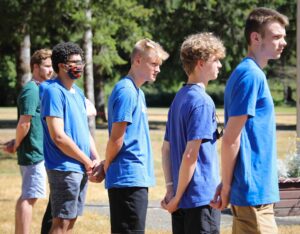 When I think of Latvian culture, I think of the variety of food, dances, songs and signs that have been around for generations.
When I think of Latvian culture, I think of the variety of food, dances, songs and signs that have been around for generations. 
